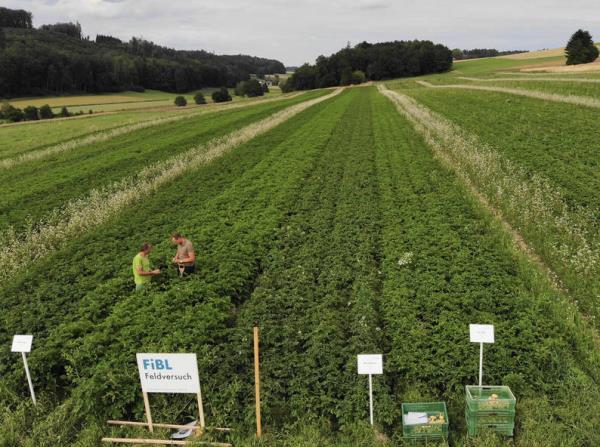Agricultural areas cultivated organically reached 72.3 million hectares in 2019
All countries
Tuesday 09 March 2021
FJ
FiBL is one of the world's leading research institutes for organic agriculture. With sites in Switzerland, Germany, Austria and France (Photo: FiBL, Thomas Alföldi).
The ever-increasing demand for organic products has led to an increase in the areas dedicated to organic crops. In 2019, organic agricultural areas reached 72.3 million hectares according to data from 187 countries.
FiBL, the Swiss-based Organic Agriculture Research Institute, and IFOAM - Organics International, the International Federation of Organic Agriculture Movements, presented the latest data on organic farming around the world. Bringing together data from 187 countries, the study "The World of Organic Agriculture" was presented at the Biofach trade fair which was held online this year.
According to these data, at the end of 2019, organic agricultural areas totaled 72.3 million hectares, an increase of 1.6% or 1.1 million hectares compared to 2018. Globally, only 1.5% of the agricultural area is cultivated organically. The area devoted to organic farming has increased on all continents except Asia, mainly due to reduced areas in China, and Oceania.
Half of the world's organic agricultural area is in Oceania (36.0 million hectares). Europe has the second largest area (16.5 million hectares), followed by Latin America (8.3 million). Australia is the country with the largest organic agricultural area (35.7 million hectares, mainly pasture), followed by Argentina (3.7 million) and Spain (2.4 million).
Regarding the global organic food market, the turnover was estimated at 106 billion EUR in 2019. The 1st market was that of the United States (44.7 billion EUR), followed by the 'Germany (12.0 billion EUR) and France (11.3 billion EUR). The highest per capita expenditure on organic food is recorded in Denmark and Switzerland.
The health crisis has led to growing demand for organic products all over the world. "We expect the data for 2020, which will be available in 1 year, to reveal the impact of the pandemic on the organic sector," commented Helga Willer of FiBL.
source : fibl.org





